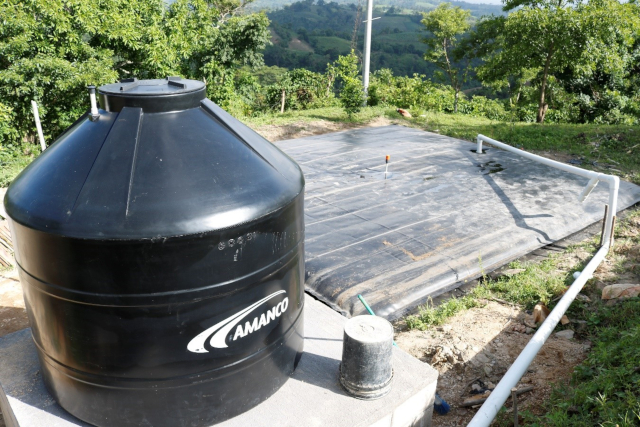Central America is one of the regions most affected by climate change. Its effects are reflected in more intense, recurrent and prolonged hydrometeorological phenomena that are manifested in two extremes of the same spectrum: floods and drought. In turn, multiple factors such as rapid environmental degradation, lack of territorial ordering, institutional weaknesses or lack of adequate infrastructure make it one of the most vulnerable regions in the world in the face of extreme climate, with the Central American Dry Corridor being one of the most the most affected areas.
To respond to this challenge, GWP Central America, within the framework of the Water, Climate and Development Programme (WACDEP) has been involved in the promotion and development of capacities around the use of Rainwater Harvesting Systems, supporting its implementation through the mobilisation of allies and partner institutions, generating important achievements in the transfer of technology and gaining valuable experiences in technical and organisational aspects. This work also contributes to a better understanding of Integrated Water Resource Management (IWRM) and gives interventions a gender perspective.
The case study on the implementation of Rainwater Harvesting Systems with a geomembrane bag is set in rural areas of Honduras and El Salvador, with women being the main characters of the story. The case study is available in English and Spanish.
The case study was prepared by Axel Martinez, an intern with GWP Central America from August to December 2018 - he wrote a blog post about his experience.

